








Recreate Life Counseling
Verified Center
This provider's information has been quality-checked by Recovery.com's Research Team for accuracy and completeness, including center verification through appropriate third-party organizations.
Treatment Focus
This center treats substance use disorders and mental health conditions. You'll receive individualized care catered to your unique situation and diagnosis, learn practical skills for recovery, and make new connections in a restorative environment.
Primary Level of Care
Offering intensive care with 24/7 monitoring, residential treatment is typically 30 days and can cover multiple levels of care. Length can range from 14 to 90 days typically.
Treatment Focus
This center treats substance use disorders and mental health conditions. You'll receive individualized care catered to your unique situation and diagnosis, learn practical skills for recovery, and make new connections in a restorative environment.
Primary Level of Care
Offering intensive care with 24/7 monitoring, residential treatment is typically 30 days and can cover multiple levels of care. Length can range from 14 to 90 days typically.
Provider's Policy
We accept most major health insurance plans along with other forms of payment to make addiction treatment affordable for yourself or a loved one. If your insurance is not listed here, contact us for an instant coverage verification because this is only a partial list and we accept many more.
Recreate Life Counseling
Recreate Life Counseling
About Recreate Life Counseling
At Recreate Life Counseling in sunny Boynton Beach, Florida, they approach healing with genuine respect, understanding that addiction rarely stands alone. They tackle a spectrum of substance use and mental health conditions (like anxiety, depression, and trauma) with a full continuum of care—from residential treatment to outpatient programs and sober living.
Turn Recovery into Self-Discovery
At Recreate Life Counseling, treatment is a partnership built on respect and personal growth. Each client’s care reflects that individuality. Through a balance of group support and one-on-one therapy, clients learn how to face challenges with confidence, understand their emotions, and rebuild relationships. The process is designed to help individuals overcome addiction or mental health struggles and rediscover who they are and what they want their lives to look like.
Find Calm under the Palm Trees
The spaces are thoughtfully designed and calm, from airy, sunlit rooms to outdoor areas that encourage connection. Just minutes from the ocean, the setting offers a sense of openness that mirrors the work being done inside. With morning light through palm trees, quiet moments of clarity, and genuine conversations, it’s a place where healing feels natural.
Keep the Flame of Recovery Alive
Once formal treatment ends, clients step into a space where support keeps flowing: regular in-person and virtual gatherings bring together people who’ve walked the same path and understand what recovery really means. It’s here that clients reconnect and find the kind of sober-living activities that feel joyful and meaningful.

Highlights from the Center
Highlights
These highlights are provided by and paid for by the center.
Customized Treatment Plans
Holistic Approach
Pool
Family Owned & Operated
Center Overview
Treatment Focus
This center treats substance use disorders and mental health conditions. You'll receive individualized care catered to your unique situation and diagnosis, learn practical skills for recovery, and make new connections in a restorative environment.
Joint Commission Accredited
The Joint Commission accreditation is a voluntary, objective process that evaluates and accredits healthcare organizations (like treatment centers) based on performance standards designed to improve quality and safety for patients. To be accredited means the treatment center has been found to meet the Commission's standards for quality and safety in patient care.
Recently helped 10 people via Recovery.com

Recreate Life Counseling
Recently helped 10 people via Recovery.com
Insurance Accepted
Cash Pay Rates
Estimated Cash Pay Rate
Center pricing can vary based on program and length of stay. Contact the center for more information. Recovery.com strives for price transparency so you can make an informed decision.




Additional Recreate Behavioral Health Network Locations
Recovery.com Verified Listing
Recovery.com verified that the name, location, contact information and license to operate for this treatment provider are valid and up-to-date.

ASAM Level 3.5 Certified

Joint Commission Accredited

Licensed by Florida DCF
Recovery.com is an independent, third-party mental health resource. Verification does not imply endorsement and does not guarantee the quality of treatment services.
Meet Your Care Team

ALEX COSTA
Chief Marketing Officer

AMANDA TIMONERE
Chief Clinical Officer
LMHC, NCC, CCMHC, MCAP

BRIEN JOHNSON
Continuity of Care Coordinator

BROOKE BOSLER
Alumni Relations Coordinator

CHELSEA KOZIAR
Director of Admissions
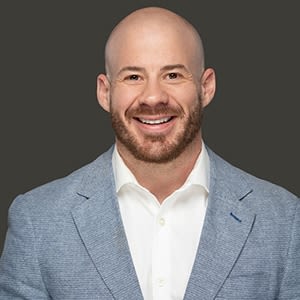
COLE TIMONERE
Clinical Director
JD, LMHC, NCC
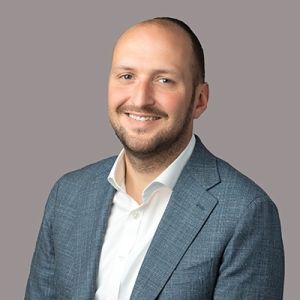
DANIEL SCHAFFER
Chief Executive Officer
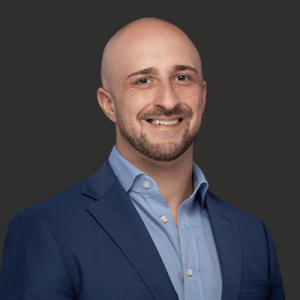
DAVID GOLOSKI
National Director of Alumni Services

DR. DUY NGUYEN
Medical Director
D.O.

JACKIE LEWIN
Director of Business Development

JENNA SCHAFER
Primary Therapist
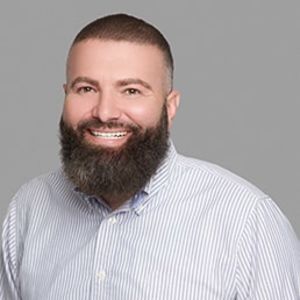
JOEL WISHNIA
Chief Operating Officer

LIAM MCELWEE
Director of Admissions

MELISSA MANZONE
Director of Operations
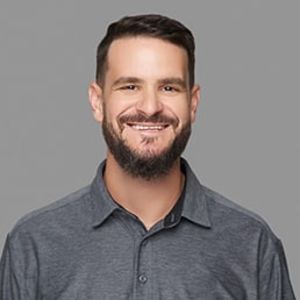
PATRICK CASEY
ARNP
Your Care Options
Specializations
Alcohol
Using alcohol as a coping mechanism, or drinking excessively throughout the week, signals an alcohol use disorder.
Detox
Detox fully and safely removes toxic substances from the body, allowing the next steps in treatment to begin with a clean slate.
Benzodiazepines
Benzodiazepines are prescribed to treat anxiety and sleep issues. They are highly habit forming, and their abuse can cause mood changes and poor judgement.
Cocaine
Cocaine is a stimulant with euphoric effects. Agitation, muscle ticks, psychosis, and heart issues are common symptoms of cocaine abuse.
Depression
Symptoms of depression may include fatigue, a sense of numbness, and loss of interest in activities. This condition can range from mild to severe.
Opioids
Opioids produce pain-relief and euphoria, which can lead to addiction. This class of drugs includes prescribed medication and the illegal drug heroin.
Trauma
Some traumatic events are so disturbing that they cause long-term mental health problems. Those ongoing issues can also be referred to as "trauma."
Who We Treat
Older Adults
Addiction and mental health treatment caters to adults 55+ and the age-specific challenges that can come with recovery, wellness, and overall happiness.
Executives
Executive treatment programs typically directly support the needs of people who manage businesses and may provide flexible schedules and office space to allow work during treatment.
Young Adults
Emerging adults ages 18-25 receive treatment catered to the unique challenges of early adulthood, like college, risky behaviors, and vocational struggles.
LGBTQ+
Addiction and mental illnesses in the LGBTQ+ community must be treated with an affirming, safe, and relevant approach, which many centers provide.
Men and Women
Men and women attend treatment for addiction in a co-ed setting, going to therapy groups together to share experiences, struggles, and successes.
Midlife Adults
For adults ages 40+, treatment shifts to focus on the unique challenges, blocks, and risk factors of their age group, and unites peers in a similar community.
Treatment Services
Day Treatment
In a PHP, patients live at home but follow an intensive schedule of treatment. Most programs require you to be on-site for about 40 hours per week.
Intensive Outpatient Program
In an IOP, patients live at home or a sober living, but attend treatment typically 9-15 hours a week. Most programs include talk therapy, support groups, and other methods.
Licensed Primary Mental Health
Some primary care providers offer mental health diagnosis and treatment. This can prevent patients from developing more serious conditions.
Outpatient
During outpatient rehab, patients attend a structured treatment program while continuing to live at home.
Residential
In a residential rehab program, patients live onsite, with access to daily treatment and 24-hour care. An average stay is 30-90 days.
Approaches
Evidence-Based
A combination of scientifically rooted therapies and treatments make up evidence-based care, defined by their measured and proven results.
Holistic
A non-medicinal, wellness-focused approach that aims to align the mind, body, and spirit for deep and lasting healing.
Personalized Treatment
The specific needs, histories, and conditions of individual patients receive personalized, highly relevant care throughout their recovery journey.
Twelve Step
Incorporating spirituality, community, and responsibility, 12-Step philosophies prioritize the guidance of a Higher Power and a continuation of 12-Step practices.
Therapies
1-on-1 Counseling
Patient and therapist meet 1-on-1 to work through difficult emotions and behavioral challenges in a personal, private setting.
Meditation & Mindfulness
A practiced state of mind that brings patients to the present. It allows them to become fully aware of themselves, their feelings, and the present moment.
Trauma-Specific Therapy
This form of talk therapy addresses any childhood trauma at the root of a patient's current diagnosis.
Transcranial Magnetic Stimulation
Localized magnetic pulses stimulate areas of the brain to increase brain activity and reduce abnormal functions.
Mindfulness Therapy
This ancient practice can be mental, emotional, and even spiritual. In meditation, you focus your attention on the present moment without judgement.
Adventure Therapy
This experiential approach uses the physical and emotional challenges of outdoor activities as tools for personal growth.
Art Therapy
Visual art invites patients to examine the emotions within their work, focusing on the process of creativity and its gentle therapeutic power.
Conditions We Treat
Grief and Loss
Grief is a natural reaction to loss, but severe grief can interfere with your ability to function. You can get treatment for this condition.
Anxiety
Anxiety is a common mental health condition that can include excessive worry, panic attacks, physical tension, and increased blood pressure.
Bipolar
This mental health condition is characterized by extreme mood swings between depression, mania, and remission.
Codependency
Codependency is a pattern of emotional dependence and controlling behavior. It's most common among people with addicted loved ones.
Depression
Symptoms of depression may include fatigue, a sense of numbness, and loss of interest in activities. This condition can range from mild to severe.
Obsessive Compulsive Disorder (OCD)
OCD is characterized by intrusive and distressing thoughts that drive repetitive behaviors. This pattern disrupts daily life and relationships.
Post Traumatic Stress Disorder
PTSD is a long-term mental health issue caused by a disturbing event or events. Symptoms include anxiety, dissociation, flashbacks, and intrusive thoughts.
Stress
Stress is a natural reaction to challenges, and it can even help you adapt. However, chronic stress can cause physical and mental health issues.
Trauma
Some traumatic events are so disturbing that they cause long-term mental health problems. Those ongoing issues can also be referred to as "trauma."
Substances We Treat
Alcohol
Using alcohol as a coping mechanism, or drinking excessively throughout the week, signals an alcohol use disorder.
Benzodiazepines
Benzodiazepines are prescribed to treat anxiety and sleep issues. They are highly habit forming, and their abuse can cause mood changes and poor judgement.
Chronic Relapse
Consistent relapse occurs repeatedly, after partial recovery from addiction. This condition requires long-term treatment.
Co-Occurring Disorders
A person with multiple mental health diagnoses, such as addiction and depression, has co-occurring disorders also called dual diagnosis.
Cocaine
Cocaine is a stimulant with euphoric effects. Agitation, muscle ticks, psychosis, and heart issues are common symptoms of cocaine abuse.
Drug Addiction
Drug addiction is the excessive and repetitive use of substances, despite harmful consequences to a person's life, health, and relationships.
Ecstasy
Ecstasy is a stimulant that causes intense euphoria and heightened awareness. Abuse of this drug can trigger depression, insomnia, and memory problems.
Heroin
Heroin is a highly addictive and illegal opioid. It can cause insomnia, collapsed veins, heart issues, and additional mental health issues.
Psychedelics
Hallucinogenic drugs—like LSD—cause euphoria and increased sensory experiences. When abused, they can lead to depression and psychosis.
Languages
Aftercare
Care Designed for Your Needs
Personal Amenities
Amenities
Special Considerations
Flexible technology policies
Centers with flexible technology policies allow professionals to stay in touch with work and give patients a greater sense of connection and normalcy.
Gender-specific groups
Patients in gender-specific groups gain the opportunity to discuss challenges unique to their gender in a comfortable, safe setting conducive to healing.
Activities
Off-Site Activities
Off-Site Amenities

Recently helped 10 people via Recovery.com
Learn More About the Center
Adventure Therapy
Explore how adventure therapy at Recreate Life Counseling can support the client journey.
Sober Living
See what sober living looks like with Recreate Life Counseling.
Medication-Assisted Treatment
Discover how Recreate Life Counseling assists the detox process with medications.
Holistic Therapy
Read how Recreate Life Counseling incorporates holistic therapies into their treatment plans.
What people are saying
Treatment
5.0
Accommodations
4.8
Food & Nutrition
4.8
Value
4.8
Pros
- Excellent & Effective Treatment Programming (9)
- Treated With Respect (9)
- Confidential (8)
- Smooth Transition Post-Treatment (8)
Cons
- Not Enough Time With Therapist (2)
Chris K
Treatment in 2024 • (30 days) • Reviewed 04/04/24
Former Client
•Sales
•Tampa, Fl
Daniel B
Treatment in 2023 • (30 days) • Reviewed 03/06/24
Former Client
Carl
Treatment in 2022 • (45 days) • Reviewed 02/01/24
Former Client
•Retired Air Traffic Control
Doc B
Treatment in 2022 • (82 days) • Reviewed 01/04/24
Former Client
•Central Texas
Corey
Treatment in 2021 • (60 days) • Reviewed 04/04/24
Former Client
•Gypsy
•Nomad





